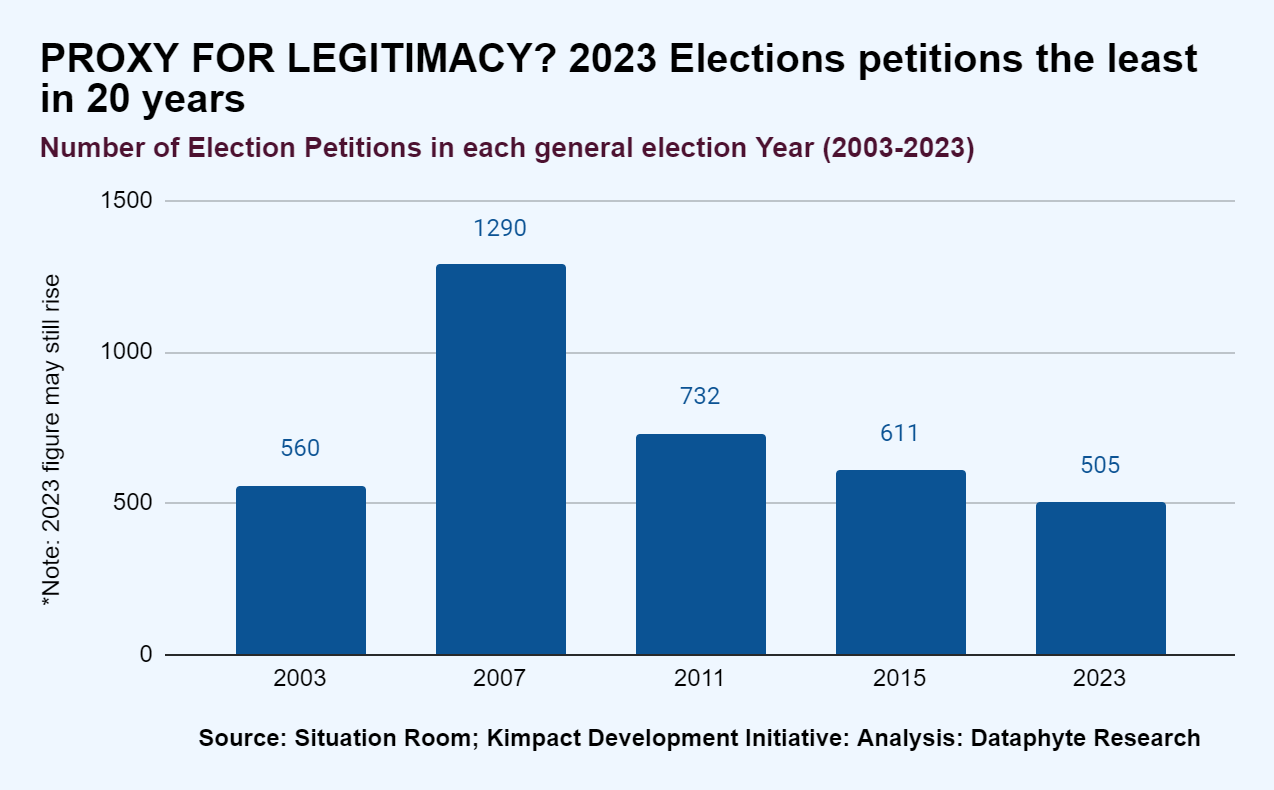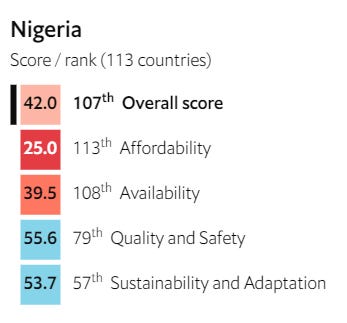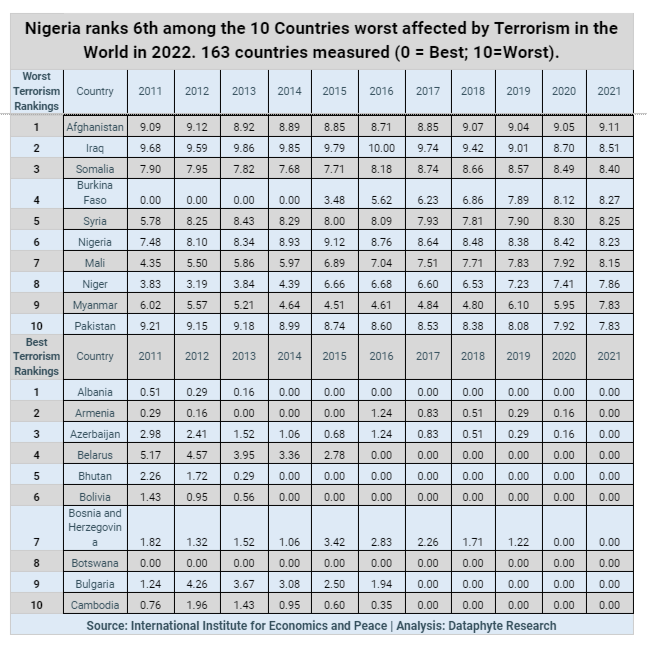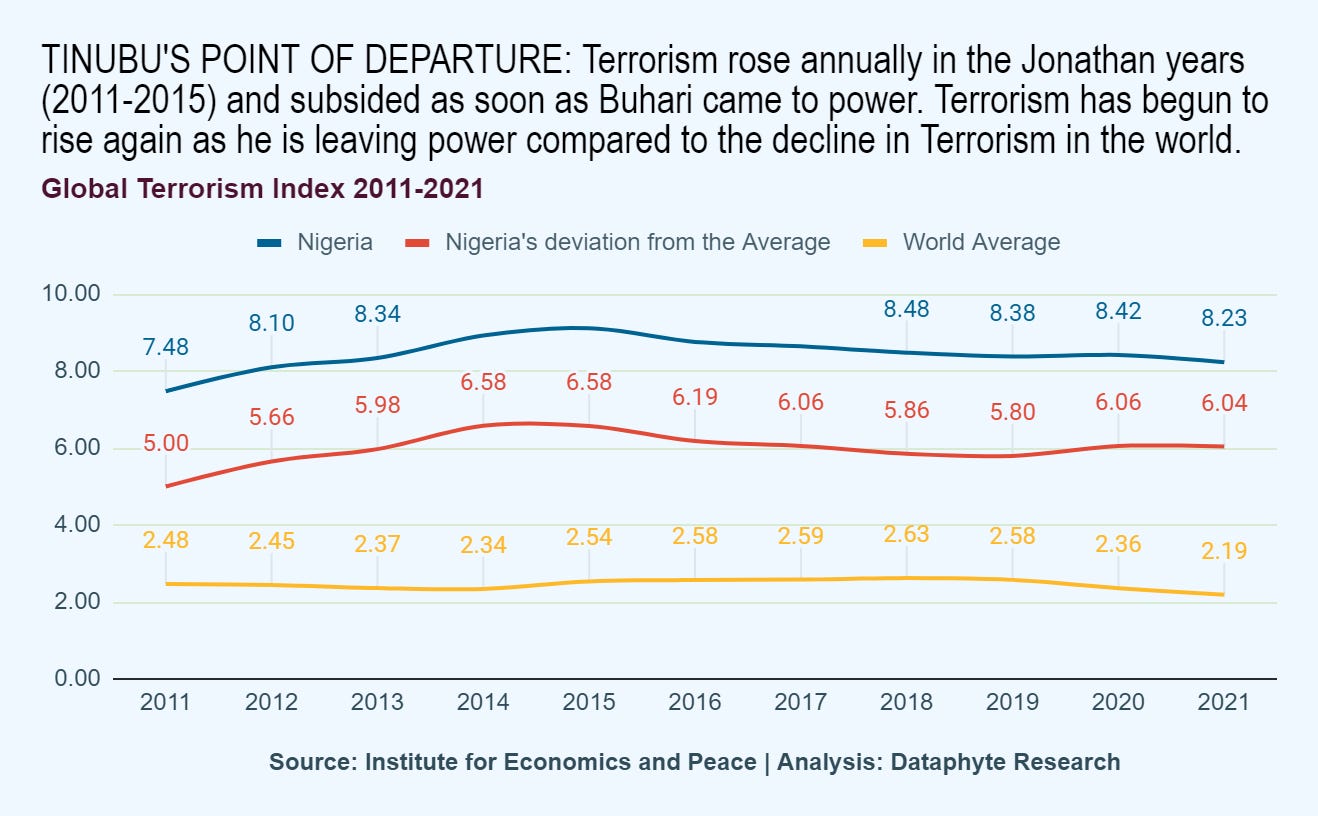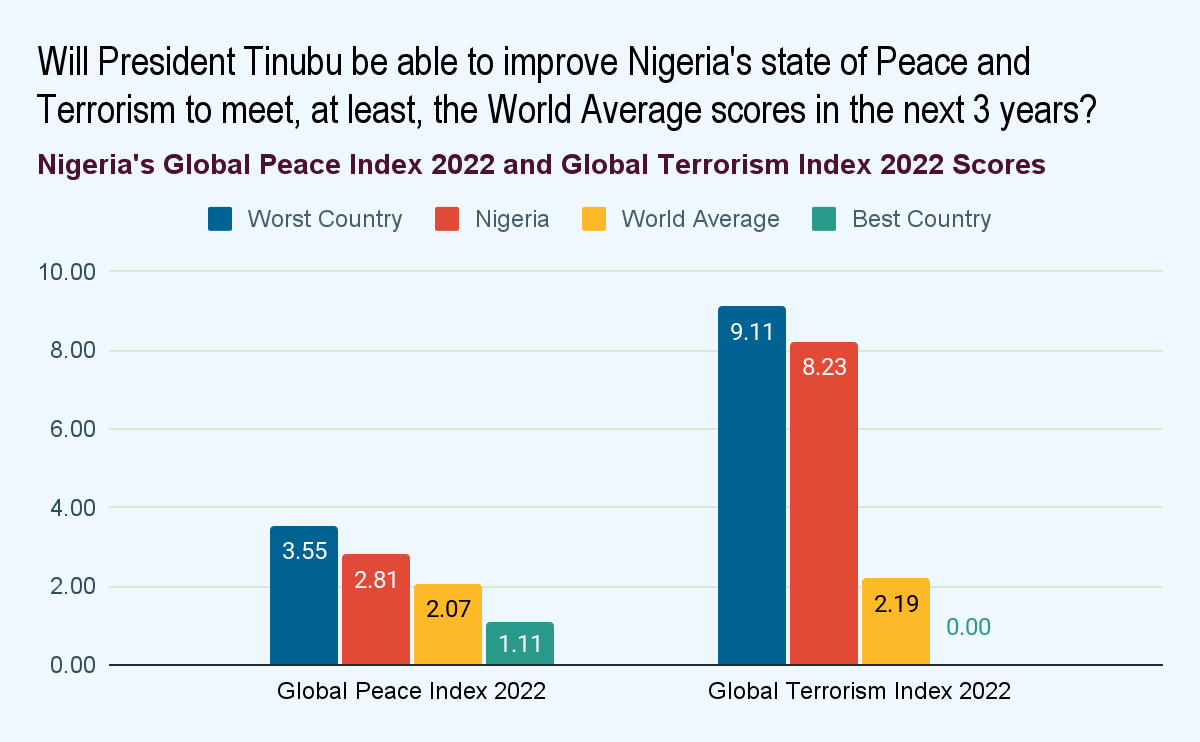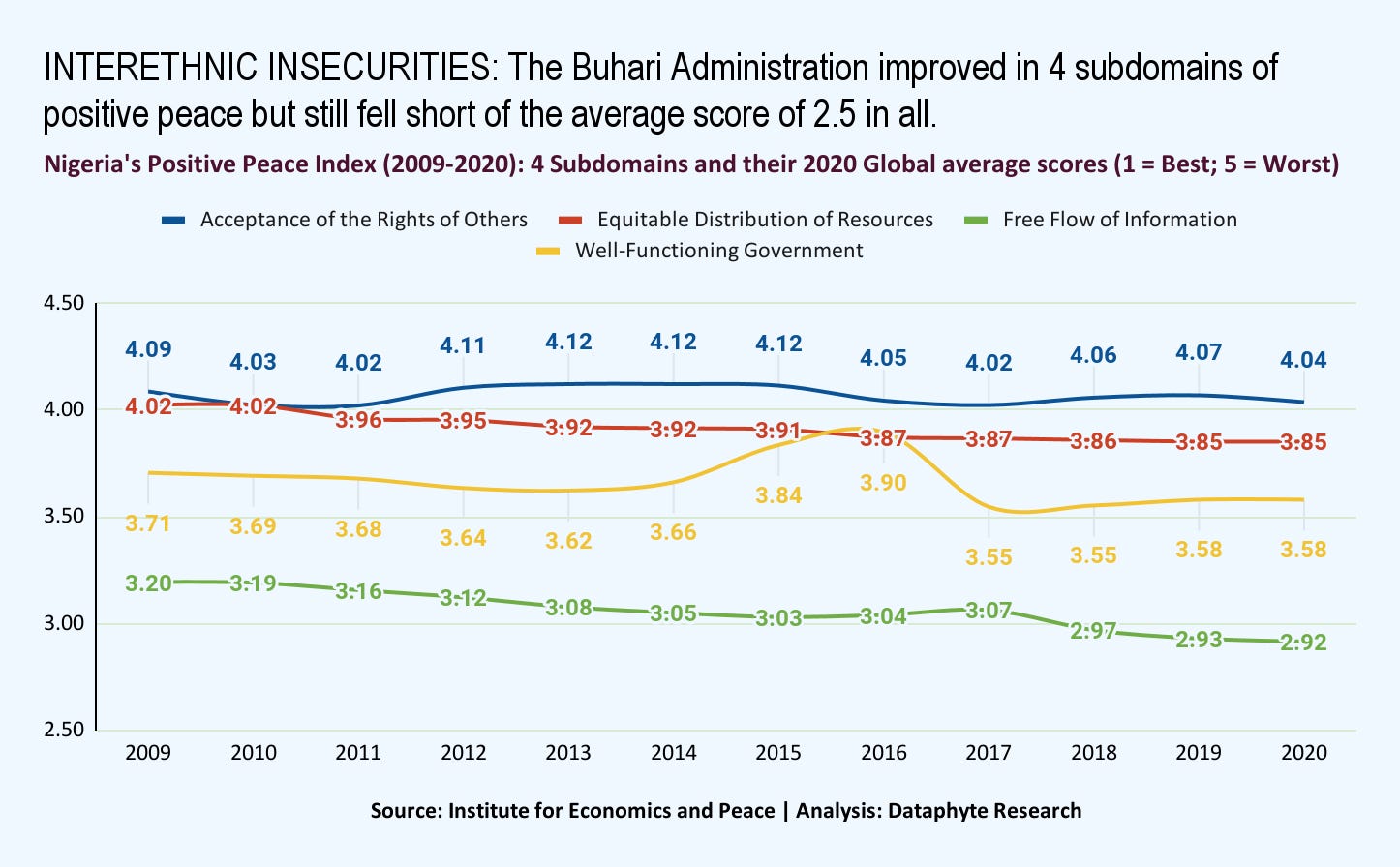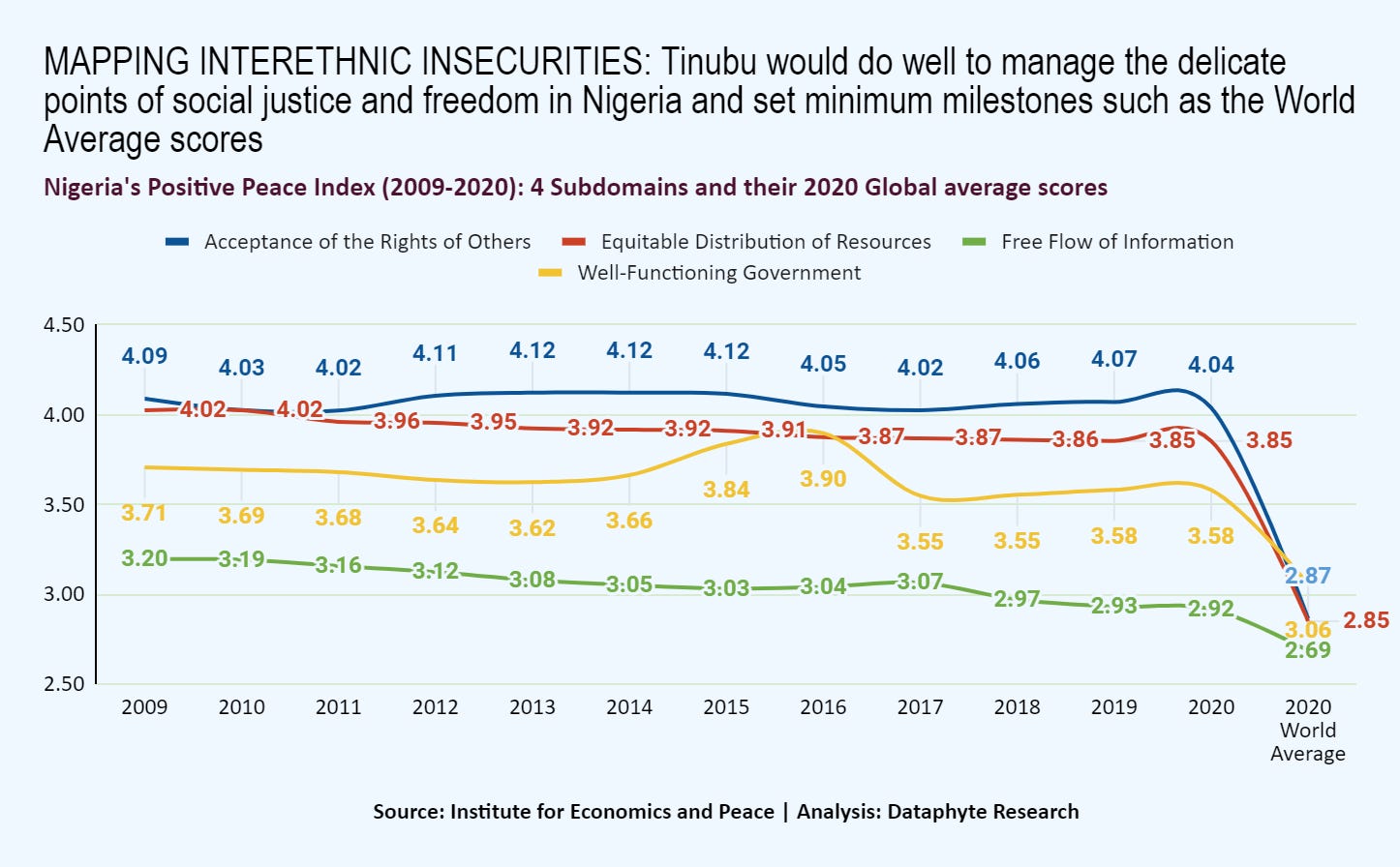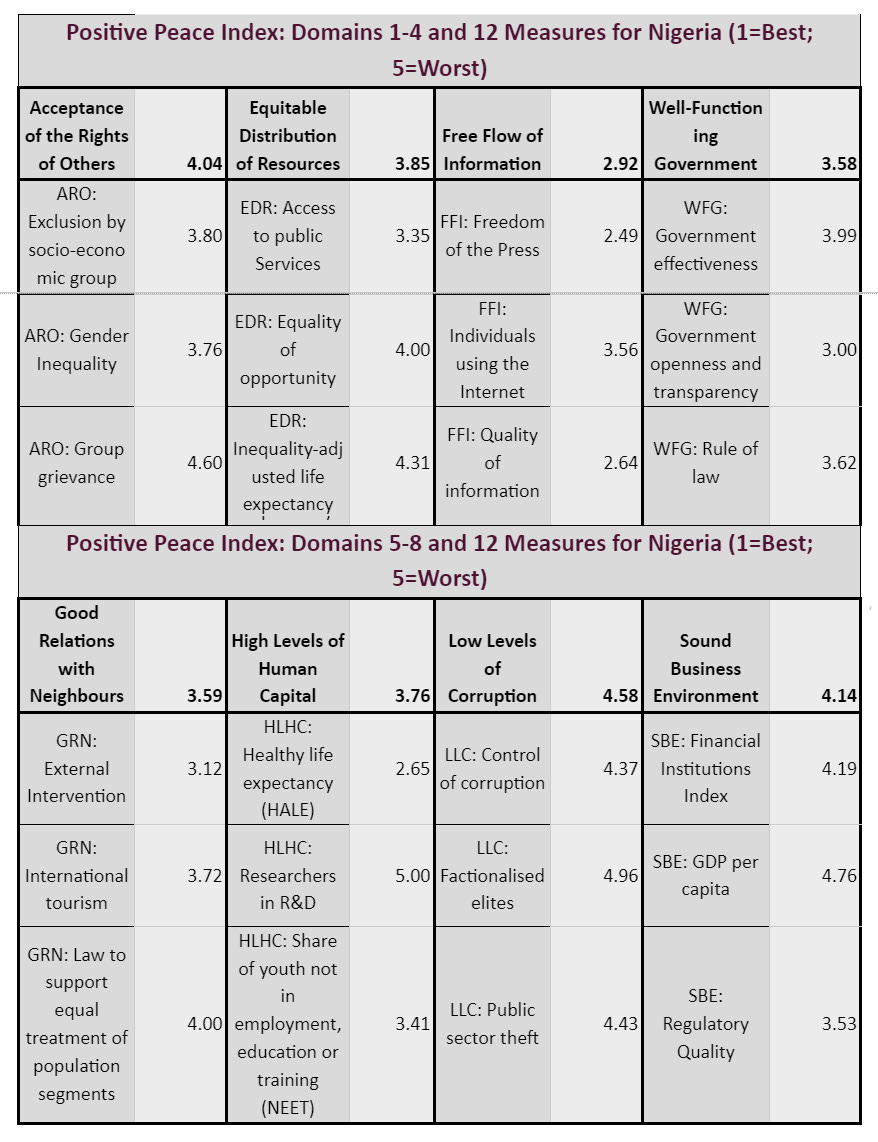On Legitimacy and Legacy: Tinubu’s head and Troubles ahead (4)
“We wish him the pleasant unease of every head that wears the crown.”
This was the last wish for President Tinubu in the third edition of the series last October.
With a recent subtle call for a coup to unseat President Bola Tinubu and the blockade of food southwards of the country both from Niger State, our forecast of the troubles ahead of Tinubu as the country’s head calls for more attention this time.
As foreseen, the coup option suggests an extrajudicial, sorry, post-judicial trial of his government’s legitimacy while the food blockade southwards is an extra-constitutional response to the 3 issues we raised surrounding his legacy: food insecurity, general insecurity, and inter-ethnic security.
“Tinubu’s extemporaneous and extraneous mix of words revealed 3 troubles that were top of his subconscious mind: food insecurity, general insecurity, and interethnic insecurities,” we noted.
On his legitimacy, we observed that “Beyond Tinubu’s victory at the court, the conduct of INEC in this election attracted the least number of petitions since the 2003 elections.”
To his legacy, we reached into Tinubu’s pre-election subconscious mind to fetch his first concern, food security, followed by his other inheritance, general insecurity and inter-ethnic strife.
At this time, we represent our analyses of these three issues that still threaten Tinubu’s legacy today in hope that all stakeholders in and out of the government, and at all levels, consider for relieving the trouble on Tinubu’s head, and the weight borne on the people’s shoulders.
Enjoy this excerpt from the first two editions.
Legacy
A manifesto is a candidate’s desired legacy.
Ideally, it contains a candidate’s pact with the people - what they intend to do and how they want to be remembered differently from the other parties or candidates.
However, often in Nigeria, incumbent political officeholders go clearly off the markings of their campaign manifesto. Thus, people no longer trust political manifestos.
Yet, one interesting thing about Tinubu’s campaign speeches was that he spoke many times off the cuff and off the point. But the good thing about those slurred, sleepy slow-mo speeches was that they could be trusted more than the contrived manifestos. If he had evil intentions, he could have unknowingly let them out in those semi-conscious, sleep-deprived states he found himself on the campaign train many times.
So, in a way, it’s okay to measure Nigeria’s President-elect based on what he said from his subconscious mind during his campaigns, even more than when he was conscious as a politician.
Tinubu’s extemporaneous and extraneous mix of words revealed 3 troubles that were top of his subconscious mind: food insecurity, general insecurity, and interethnic insecurities.
Food Insecurity
“Corn, agabado, ewa, 🌽🍲🥘🥔 and yam in the afternoon…,” Senator Tinubu, a senior citizen, obviously defying his need to recuperate fully after surgery, spoke on, struggling for coherence during his speech at the 12th Bola Tinubu Colloquium in Kano.
Sadly, the joke is on us, not on the septuagenarian.
Why? Nigeria ranks last globally, 113th among 113 countries, regarding food affordability, according to the Economist’s Food Security Index for 2022.
Food security is measured in 4 main divisions: Affordability, Availability, Quality and Safety, and Sustainability and Adaptation.
The country’s aggregate food security score is 42, among the bottom 6 countries globally. A score of 0 is the worst, while 100 is the best.
Source: The Economist Impact 2022
Several factors could be responsible for Nigeria’s food insecurity. One is that, since the return to democracy in 1999 till 2020, the average population growth rate of 2.7% exceeded the food production growth rate of 2.6%.
The Economist observed, “While Nigeria’s performance in most categories has improved over the 11-year (Global Food Security Index) GFSI reporting period, a decrease of -22.2 in its score in (food) Affordability has led to a decline of 0.9 points in its overall score in the index.
Source: The Economist Impact 2022
“Deteriorating (food) affordability scores have been driven by 1.1) Change in average food costs and 1.5) Food safety-net programmes, which saw major respective declines in scores of 49 and 53.7 points.
“Indicators that have seen improvement, albeit at low levels, include a 47.6-point increase in 3.2) Nutritional standards (due to the implementation of a national nutrition plan and nutrition labelling), a 44.1-point increase in 2.3) farm infrastructure, and a 33-point increase in 4.5) political commitment to adaptation.
President-Elect Bola Ahmed Tinubu may need consider the country’s strengths and opportunities for action, as advised by the Economist:
“Nigeria’s performance showcases its strengths in existing nutritional standards and micronutrient availability, highlighting strong nutritional value and safety of food.
“The country also does well to limit the volatility of agricultural production (as seen in the yearly fluctuations in the ‘FOOD INSECURITY’ Chart above). On the other hand, Nigeria’s performance in the index highlights that there remain multiple areas for action to enhance the food security environment in the country.
Nigeria’s Food Security: Strengths and opportunities for action
Source: The Economist Impact 2022
“Making food more affordable is a top priority, given the weak index performance, and developing food safety-net programmes is an important task ahead. For the broader environment of food security, developing a food security policy and establishing a food security agency”
Why they often don’t eat?
Beyond these general suggestions, Dataphyte notes that food insecurities emanate from general insecurities such as conflicts.
As such, lower food availability (low supply of farm produce) for a teeming population (with high demand for food) leads to weak food affordability (high prices of food).
This link between food insecurity (food crisis) and general insecurity (conflict situations) in Nigeria is clearly seen in the following sub-indices:
2.6) Poor Supply chain infrastructure with a score of 23.9 and a decline of -3.7 over the past 11 years.
2.7) Low Sufficiency of supply of farm produce with a score of 25.5, worsened by -5.8 points in the last 11-year period.
2.8) High Political and social barriers to access with a score of 31.6, which only improved by 5.7 points in the last 11 years.
2.9 Absolute absence of policy commitments to food security in the last 11 years.
In this regard, President-elect Tinubu already had his thinking cap on when he linked the country’s food crisis to its conflict situation in his often-scorned speech.
“There is an endogenous relationship between conflict and severe food crisis. Not only do 60% of the world’s hungry people live in countries experiencing conflict but also (the) prevalence of undernourishment in conflict-affected low- and middle-income countries are between 1.4 and 4.4% points higher on average as compared to countries in the same income category that are not affected by conflict.
“Directly, conflict may increase food expenditure, reduce diversification of the household diet, and decrease food security through conflict-associated acts, such as (the) occupation of farmlands, destruction of livestock, and theft of crops. Indirectly, conflict impacts food insecurity through various channels, such as disrupting agricultural production and affecting farmers’ investment decisions”, Tracy Kuo Lin and 7 others noted in their research.
It is left to see whether Mr Tinubu will walk the talk by instituting policy commitments towards food security early in his administration.
To remove the country from the ignoble last position (113th of 113 measured countries) globally in food affordability, Tinubu is required to formulate policies that urgently reverse poor supply chain infrastructure, low sufficiency of farm produce, high political and social barriers to access, such as terrorism, banditry, and interethnic conflicts.
The next question is: How will Tinubu solve the root cause of unaffordable corn, agbado, ewa (beans), cassava, yam, or other vitamin-enriched foods? How will Tinubu end the conflict ravaging the country from north to south? How will Tinubu end martial, interreligious, and interethnic insecurities in the land?
General Insecurity
Going by his famous funny speech on the need to incentivise the youths with Ewa and Agbado (beans and corn) to join the army and other security forces, Mr Tinubu appears worried about his country’s security situation.
Data from the 2022 Global Peace Index shows that Tinubu’s call for increased recruitment of youths into the army may be right after all. Yet, successful soldiers and policemen worldwide need more than cassava and corn to confront hardened sociopaths.
The Global Peace Index (GPI) is “a composite index measuring the peacefulness of countries. It is made up of 23 quantitative and qualitative indicators, each weighted on a scale of 1-5. The lower the score, the more peaceful the country”, according to the Institute for Economics and Peace.
As Candidate Tinubu struggled to show us in his speech then, Nigeria’s security situation calls for serious attention. His motive looked good, but his methods came by as simplistic to many.
Nigeria ranks 6th of 163 countries on the Global Terrorism Index, trailing Afghanistan, Iraq, Somalia, Burkina Faso and Syria. And Nigerians suffer from the scourge of terrorism more than people in Mali, Niger, Myanmar and Pakistan.
The Global Terrorism Index (GTI) is a comprehensive study analysing the impact of terrorism for 163 countries covering 99.7 per cent of the world’s population.
Using data from Terrorism Tracker and other sources, the GTI produces a composite score to provide an ordinal ranking of countries on the impact of terrorism, according to the Institute for Economics & Peace (IEP).
“The GTI scores each country on a scale from 0 to 10, where 0 represents no impact from terrorism, and 10 represents the highest measurable impact of terrorism.”
Mr Tinubu faces the twin problem of upgrading the security apparatus to keep the peace and degrading a well-funded and sophisticated terror industry.
Interethnic Insecurity
As predicted by Dataphyte, the 2023 general elections bared the ethnic and religious cleavages that inhibited unity and threatened peace in the country.
Besides setting moderate targets (global average scores) for President-elect Tinubu on improving peace and tackling terrorism, the incoming governments at all levels need to map the delicate points of growing interethnic insecurities.
A well-suited index to guide here is the positive peace index.
“Positive Peace is defined as the attitudes, institutions and structures that create and sustain peaceful societies. (It) measures the level of societal resilience of a nation or region accordingly.”
In measuring Positive peace, we discover that “The same factors that create lasting peace also lead to many other positive outcomes that societies aspire to.
“Countries with high Positive Peace are more likely to maintain their stability and recover more easily from internal and external shocks. Through the modelling of the relationship between Positive Peace and the actual peace of a country, as measured through the Global Peace Index (GPI), it is possible to predict large falls in peace”, the IEP further explained.
To get to the root of interethnic strife in Nigeria, governments at all levels need to focus on the 8 subdomains and 24 measures of positive peace.
The people expect the Tinubu administration to do better than its predecessor in managing the delicate points of social justice and freedom across the country. Working through the intricate subdomains of positive peace could facilitate good governance, social cohesion and economic prosperity for all.
For a man who was not served his certificate of return “a la carte”, nor indeed many of his certificates, he must brace up to surmount the enormous challenges that come with bearing the burden of 200 million people - of wearing the much-coveted crown of the President of the Federal Republic of Nigeria and serving as the Commander in Chief of its Armed Forces.
Thanks for reading this Data Dive. See you next week!




